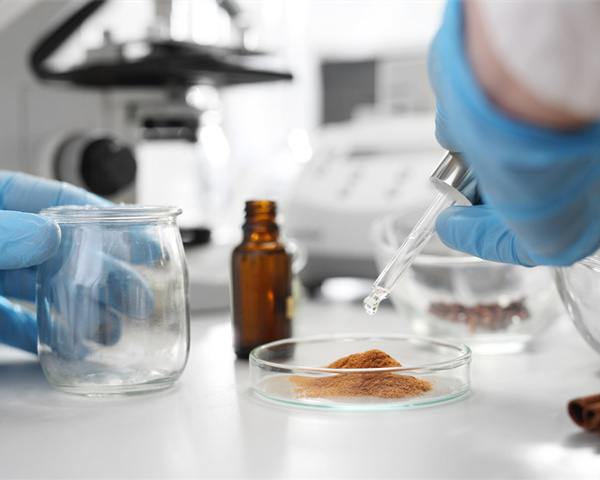PHDS HEALTHCARE RESEARCH Co., Ltd.
Product Registration
Share
New food ingredient registration
Service Overview
We provide comprehensive registration services for new food ingredients, aimed at helping businesses legally introduce innovative food ingredients to the market. Our services cover the entire process from initial consultation to obtaining the final approval certificate, ensuring that your new food ingredients comply with national food safety regulations and standards.
Service Content

Consultation on Registration Requirements
Regulatory Interpretation:We provide relevant regulatory interpretations for the registration of new food ingredients to ensure you fully understand the registration requirements.
Preparation of Application Materials:Assist you in preparing a complete set of application materials, including application forms, new food ingredient development reports, safety assessment reports, etc.
Safety Assessment
Toxicology Testing:Conduct comprehensive toxicology tests to demonstrate the safety of new food ingredients.
Nutritional Evaluation:Conduct nutritional evaluations to assess the nutritional value and safety of new food ingredients.
Data Collection and Organization
Qualification Documents:Collect business licenses, production permits, and other qualification documents.
Detailed Data Preparation:Prepare detailed information such as research and development reports for raw materials, production process descriptions, quality control measures, label samples, etc.
Submit Registration Application
Fill out Application Form:Accurately and completely fill out the new food ingredient registration application form according to the format and requirements specified by the National Health Commission.
Submit Application Materials:Submit the completed application form along with relevant supporting materials to the National Health Commission or its designated acceptance agency.
Acceptance and Review
Formal Review:Assist you in passing the formal review by the acceptance agency to ensure the completeness and compliance of application materials.
Technical Review:Organize experts to conduct a technical review of the applied new food ingredients, including reviewing safety assessment reports, production processes, quality standards, etc.
On-site Verification:Cooperate with regulatory authorities for on-site verification of the production site of new food ingredients to ensure that production conditions, processes, quality control, etc., are consistent with the submitted materials.
Administrative Approval and Certificate Management
Administrative Approval:Follow up on the administrative approval decision from the National Health Commission based on comprehensive review results.
Certificate Management:Manage the approval certificate for new food ingredients to ensure that renewal registration is applied for before its expiration.
Declaration of New Food Ingredients'New food ingredient registration' refers to applying for registration of new food ingredients with relevant regulatory authorities in order to obtain legal market access qualifications. New food ingredients typically refer to those that do not have traditional consumption habits in our country, including animal, plant, and microbial sources; components isolated from animals, plants, and microorganisms; food components with altered original structures; as well as other newly developed food ingredients. 'Key Information on New Food Ingredient Registration''Registration Requirements:''The registration of new food ingredients requires submitting a series of application materials, including application forms, new food ingredient development reports, safety assessment reports, production processes, relevant standards being followed, labels and instructions, domestic and international research utilization situations and related safety assessment data. Additionally, if applying for imported new food ingredients, proof from relevant departments or institutions in the exporting country (region) allowing the product to be produced or sold in this country (region) must also be submitted, along with proof from relevant institutions or organizations in the exporting country (region) regarding audits or certifications of the producing enterprise.' 'Registration Process:''The registration process for new food ingredients includes preparing reports on component analysis, hygiene studies, toxicological safety evaluations, risk assessment opinions, etc., as well as enterprise defenses, expert reviews, supplementary data submissions even on-site verifications and public consultations. The entire process is very strict and complex; success is closely related to the standardization and compliance of submitted materials. Therefore, conducting a pre-assessment before submission is very important.' |
'Registration Process''Preparation Before Application''Confirm Raw Material Properties:''Clarify basic information such as source, composition, production process, consumption methods, quality standards of new food ingredients to ensure they meet the definition and scope of new food ingredients.' 'Conduct Safety Assessment:'Conduct a comprehensive safety assessment, including toxicological tests, nutritional evaluations, microbiological inspections, etc., to prove that the raw material is harmless to human health under the expected consumption conditions. Collect relevant information:Prepare the company's business license, production license, and other qualification documents, as well as detailed information such as the raw material's research and development report, production process description, quality control measures, and label samples. Submit Registration ApplicationFill out Application Form:Fill out the new food raw material registration application form according to the format and requirements set by the National Health Commission, providing accurate and complete information. Submit Application Materials:Submit the completed application form and relevant supporting materials to the National Health Commission's government service hall or its designated acceptance agency. Acceptance and ReviewFormal Review:After receiving the application, the acceptance agency will conduct a formal review of the completeness and compliance of the application materials. If materials are incomplete or do not meet requirements, the company will be notified to supplement or correct them within a specified time. Technical Review:Organize experts to conduct a technical review of the applied new food raw materials or require an on-site defense. This includes reviewing safety assessment reports, production processes, quality standards, etc., to evaluate their safety, nutritional characteristics, and compliance with relevant regulations and standards. On-site Verification:If necessary, regulatory authorities may conduct on-site inspections of the production site of new food raw materials to check whether production conditions, processes, and quality control are consistent with the submitted materials, ensuring that product quality and safety are effectively guaranteed. Administrative Approval:Based on the results of formal reviews, technical reviews, and on-site inspections, the National Health Commission will make an administrative approval decision. If approved, a new food raw material approval certificate will be issued; if not approved, the company can make corrections as required and reapply. Certificate Management:The validity period of the new food raw material approval certificate is generally 5 years. Before expiration, companies need to apply for renewal in advance to ensure legal production and use of products. PrecautionsPay attention to regulatory changes:The registration management regulations for new food raw materials may be adjusted and improved based on industry development and regulatory requirements. Companies should pay attention to changes in relevant regulations in a timely manner to ensure that registration applications comply with new provisions. |
 Our capabilities
Our capabilities
Professional knowledge:Our team consists of food regulation experts and industry consultants who have an in-depth understanding of food additive registration processes and regulatory requirements.
Efficient processes:We have optimized the registration process to quickly respond to and handle various registration matters, shortening your product's time to market.
Successful cases:We have numerous successful cases that help clients smoothly pass through the registration process and obtain food additive approval documents.
Customer service:We provide one-on-one customer service to ensure that every question you have can be answered promptly and professionally.

Why choose us
One-stop service:From consultation to registration, we provide one-stop services so you don't have to worry about complicated registration processes.
Professional team:Our team members have a strong industry background and professional knowledge that can provide you with precise consulting services.
Cost-effectiveness:Through our professional services, you can avoid time and cost losses caused by insufficient material preparation or unfamiliarity with processes.
Continuous support:We not only help you complete registration but also provide subsequent supervision and management services to ensure your products remain compliant.
By choosing us, you will gain a trustworthy partner who helps your food additive business enter the market smoothly and efficiently. We look forward to working with you to create a future of food safety.











 京公网安备11010502056452号
京公网安备11010502056452号